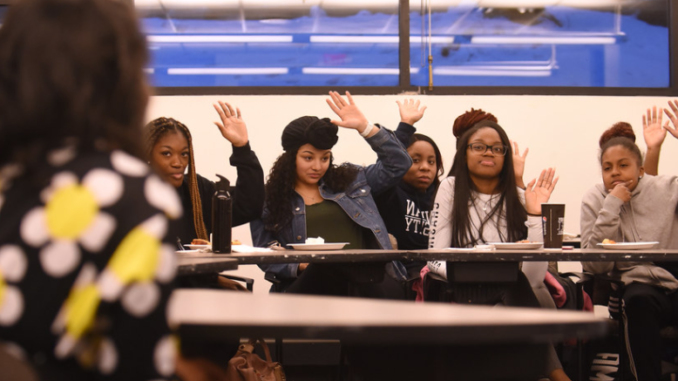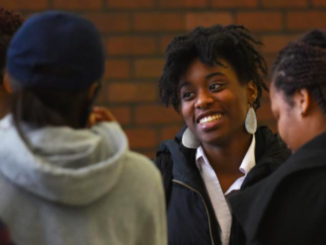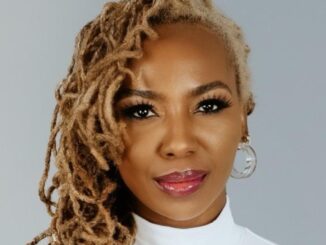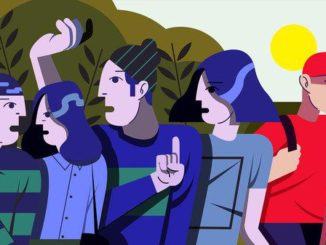
By Lauryn Bergert
Our entire nation is mourning the loss of many black lives at the hands of police officers, those who vow to protect and serve all Americans. Is it fair that from a young age children of color are taught to fear the police, but white children are taught to call the police if they are in danger? Who are people of color supposed to call in times of danger? Who do we call when the police kill us? Our nation is divided right now, in more ways than one. We must find ways to end white supremacy, police brutality, and systematic racism.
I have wrestled with how to put my feelings into words during this time. I have reflected on my identity as a bi-racial woman in America. I have had countless conversations with people about the #BlackLivesMatter movement and how to bring change within our nation. I have spent nights thinking of ways to promote change within our world. I have come to the conclusion that I must begin with the communities in which I am a part, including Dominican University.
I have personally loved my experience at Dominican University. I have built relationships with many faculty and staff members. I have been afforded opportunities to build my leadership skills and learn more about who I am as a person, but not all African American students have similar experiences as mine. The institution’s data of Black students speaks for itself.
In Fall 2014, African American students made up 9.0% of the total Dominican student population. By the fall of 2019, that number declined by 2.5%, making African American students only 6.5% of the total student population.
Now, let’s take a look at the African American student retention rates. In Fall 2018, African American students made up only 5.4% of the freshman class but made up 48.5% of freshman students who did not return to Dominican University for Fall 2019.
How can we as a community ensure that our black students want to come back to Dominican?
How can we as a Dominican family put an end to systematic racism on our campus, promoting inclusion in all spaces for ALL students?
I have been thinking about these questions for weeks. I am only one person and my voice is not the voice for all Black students on this campus, but I want to make sure that this data and these issues are not silenced. I believe now more than ever, we must look inside the communities in which we are a part of and start having these challenging and uncomfortable conversations. Dominican University has done a great job of starting to promote diversity and inclusion on our campus, but there is always room for improvement and growth. If we want our campus to be a place for all students, we must make sure we are meeting the needs of ALL students.
Relationships. Conversations. Listening. Self-Reflection. Active Change.
These are only a few of the many ways we can start changing our campus to serve all. We must first start by building relationships with all of our students and listening to their needs. This allows conversations to spark, they may be uncomfortable, but they need to be had. We must
reflect, as students of color, on what we need and want, but also being able to vocalize those needs and wants. Faculty and staff, you also need to have self-reflection on how you are treating students and how you are actively building a relationship with ALL students. Then, we are able to start coming together to plan and promote active change on our campus.
I also want to challenge all faculty and staff members, not just those of color, to start being intentional with your mentorship of African American students. Relationship and mentorship are very important for success, especially during a student’s time in college. I believe once we step out of our comfort zones and start connecting with people of different backgrounds than us, we are able to learn so much more about each other and how our life experiences have shaped us to be who we are today. If a student has the opportunity to really connect with one faculty/staff member during their time at Dominican, think about how that could potentially alter their entire experience.
So, where should we start?
I believe we must follow through with our discussions and conversations. Uncomfortable discussion and conversations, to be exact. Until we sit down and challenge ourselves during these uncomfortable times, nothing will occur. We will stay in the same bubble of comfortability and never grow in certain areas of our lives or even learn from others experiences.
African American students have been speaking with faculty and staff in leadership positions for years. There have been forums, protests, letters written, but students still feel like their voices are not being heard. I think we must start with the ways we are marketing to our incoming students. Is our University actively venturing into predominantly Black neighborhoods and schools telling students about Dominican? Then when these students get on campus, how are we actively serving them to ensure they are welcomed and feel at home on campus? I hope that when we return in Fall 2020, leadership will sit down with student leaders and start actively working with us to bring change in order to better serve our Black students.
My experience has been wonderful because of the faculty, staff, and students who have been intentional in building relationships with me. Connecting with people from different backgrounds has opened my eyes and my mind, which allows me to think deeper. My experience has been great, but the data shows that not every Black student who walks through Dominican’s doors can say the same. Dominican University, you are a phenomenal campus, but we have to do better. The data and these experiences of our Black students are real. We have to start speaking openly about all of it. I believe this campus has the ability to be a space for all students to learn, grow, and excel in every area of their lives. Real change needs to occur within our entire nation, but we must begin within our own communities first.
Lauryn Bergert, Class of 2021
Psychology & Black World Studies Major
Peer LEADer, Student Success & Engagement Office
President, Phenomenal Women’s Chapter of NACWC
Photo credit to Dominican University Flickr



